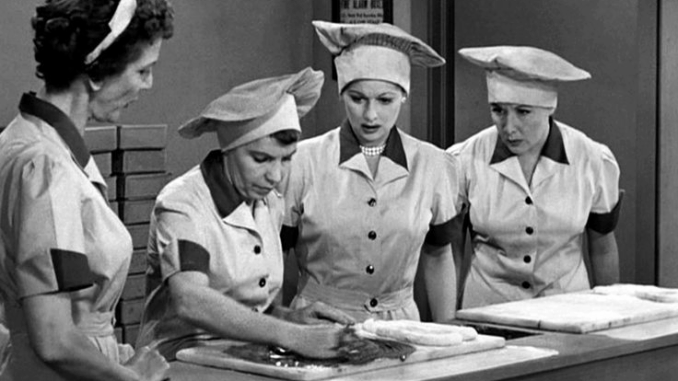
The second season of I Love Lucy, airing from 1952 to 1953, marked a pivotal moment for the series, as it not only sustained but amplified its comedic brilliance and cultural impact. As the show gained unprecedented popularity, Lucille Ball and Desi Arnaz continued to explore the hilarious trials and triumphs of married life.
The Evolution of Lucy and Ricky
In Season 2, Lucy’s never-ending quest to break into showbiz continues, but with a richer exploration of the couple’s dynamic. Episodes like Job Switching, where Lucy and Ethel take on jobs at a candy factory while Ricky and Fred manage the household, brilliantly capture the humor in role reversals. The iconic scene of Lucy and Ethel struggling with an out-of-control conveyor belt has since become a symbol of classic TV comedy.
Family Life and New Challenges
This season also delves into the Ricardos’ growing family. In the episode Lucy Is Enciente, Lucy finds out she’s pregnant—a groundbreaking storyline at a time when pregnancy was rarely depicted on TV. The subsequent episodes, leading up to the birth of Little Ricky, resonated with viewers and showcased Ball’s ability to blend humor with heartfelt moments.
More Comedy Gold
Another standout is The Handcuffs, where Lucy and Ricky find themselves stuck together, quite literally, due to Lucy’s curiosity. The ensuing chaos of trying to break free while maintaining their daily routine is a perfect example of the show’s skillful blend of situational and slapstick humor.
A Cultural Phenomenon
By Season 2, I Love Lucy was not just a TV show but a cultural phenomenon. It continued to dominate ratings and solidified Lucille Ball as a television icon. The show’s commitment to evolving its storytelling while maintaining its comedic core kept audiences invested week after week.
Enduring Influence
Season 2 of I Love Lucy remains a prime example of how comedy can evolve while staying true to its roots. Its exploration of family, work, and marriage through a comedic lens paved the way for countless sitcoms that followed, proving that laughter truly is timeless.
